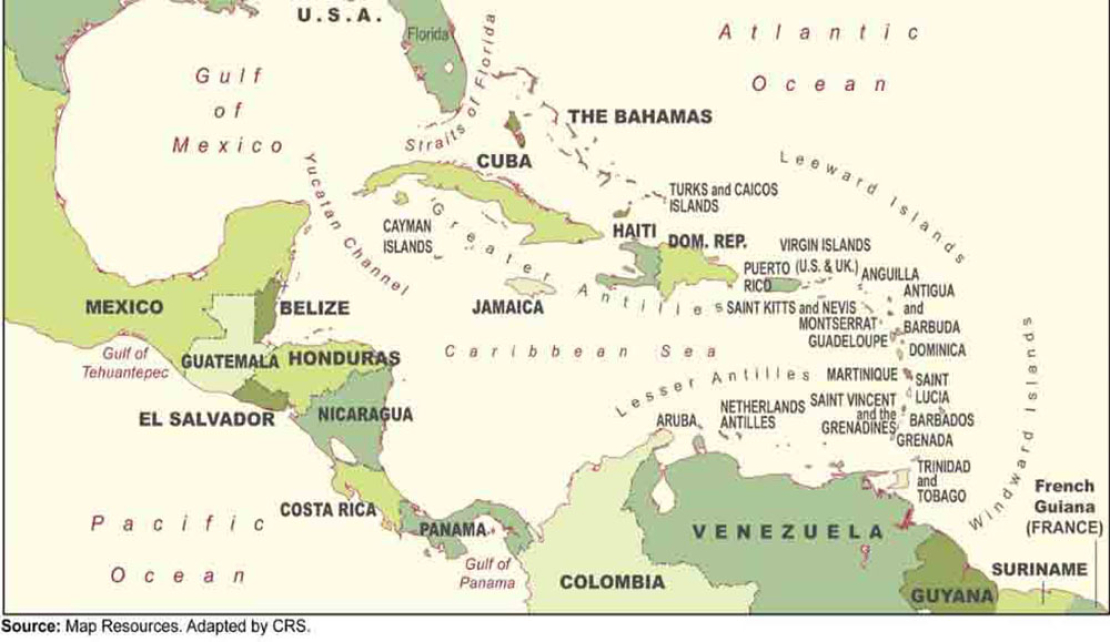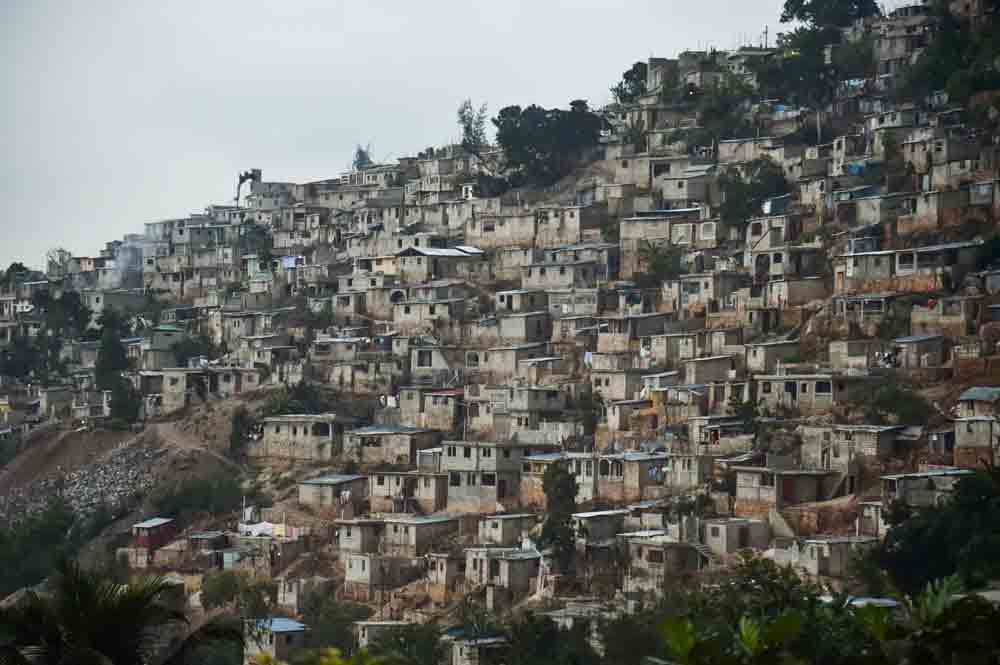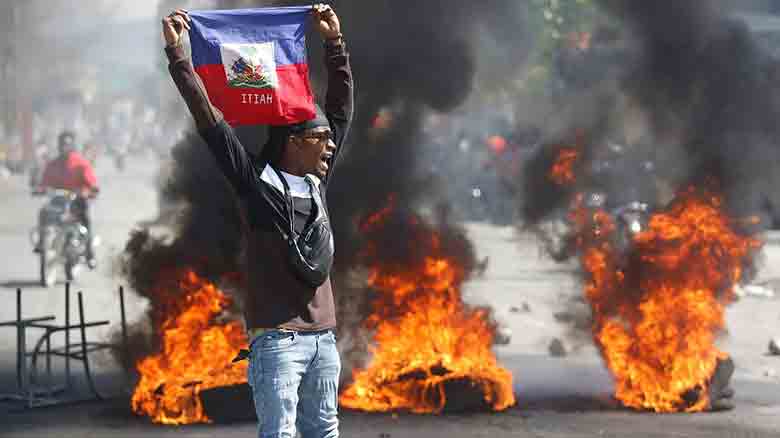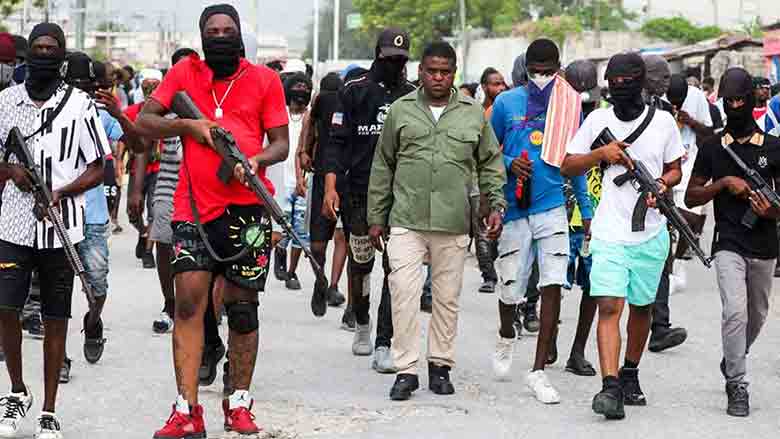Haitian Crisis : Striking Similarities Between CARICOM Leaders and some African Chiefs in the Slave Trade

GEORGETOWN, Guyana, March 8, 2024 - The roots of wars and conflicts are intricate, encompassing a myriad of factors; nonetheless, ideological and philosophical disparities have played a substantial role in their emergence.
The trajectory of Haiti's history since gaining independence from France in 1804 has been shaped by the Western pursuit of domination, exploitation, and subjugation, both philosophically and ideologically.
The observation underscores a consistent trend: wars and conflicts fuelled by ideologies centred on exploitation, domination, and oppression ultimately prove unsustainable, even when initial appearances suggest success.

The plan, which involved transporting troops from the Spanish Netherlands to England, intended to unite with existing Spanish forces in the Netherlands for a joint invasion. However, the Spanish forces were decisively defeated.
In November 1884, European powers convened in Berlin to strategize the division and exploitation of Africa's wealth. By the late 1960s, a united front of African leaders successfully countered this exploitative agenda.
Similarly, Hitler's vision of a dominant and superior race crumbled under the Allied forces. In South Africa, apartheid met its end in 1994. Al-Qaida is crumbling. These historical examples illustrate the ultimate failure of endeavours rooted in exploitation, oppression and dominance.
Contemporary Caribbean leaders seem to be oblivious of this reality. One reason malevolent ideologies persist is that their advocates often find support among the very groups they oppress. In historical instances such as slavery and colonialism, the avaricious actions of some African chiefs served as crucial enablers, perpetuating these oppressive systems.
A similar dynamic occurred during the struggle for liberation in Africa. Despite the universally recognized cruelty of apartheid, there were instances where black individuals became enablers of the system.
Contrastingly, in regions where leaders prioritize the welfare of their people over personal gain, a rejection of nefarious ideologies is evident. Notable examples include successive kings (Kabakas) of Buganda and Omukama Kabalega of Toro Kingdom in particular, who resisted temptations to betray their people despite external pressures.
In contrast to leaders in certain East African regions who resisted external pressures for the benefit of their people, CARICOM leaders, particularly concerning Haiti, parallel the actions of West African chiefs who, without hesitation, facilitated the sale of their people into slavery.

If CARICOM had exerted similar pressure on Haitian leaders as they did on Guyana during the 2020 election crisis, it is plausible that the current crisis in Haiti might have been averted.
The justification provided by Jimmy Cherizier, also known as Barbeque, for the violence stems from his claim that Prime Minister Ariel Henry, perceived as a U.S. puppet, failed to conduct elections. While no one condones the violence, Cherizier's assertion contains a certain validity.
Some analysts contend that the extensive involvement of certain CARICOM leaders in Guyana's elections was not primarily driven by a commitment to preserving democracy in Guyana or the broader region. Rather, it appears to be linked to the country's wealth, particularly its oil resources.

Instead, comparisons are drawn to the historical role of West African chiefs in the slave trade, implying that some CARICOM leaders may prioritize advancing Western interests in fellow member nations over the promotion of democratic values.
This occurrence is unsurprising, given that CARICOM's historical alignment on regional issues frequently mirrors that of the United States and other Western powers. This tendency is not novel; in 1983, during the USA's invasion of Grenada, seven Caribbean nations departed from the initial stance of the regional bloc, choosing to endorse the U.S. intervention.
CARICOM, one of the world's oldest regional groupings, grapples with persistent underperformance, primarily attributed to a lack of visionary leadership and the self-interest of regional leaders. Notably, despite the establishment of the Chaguaramas Treaty, interstate trade has struggled to gain significant traction.
Essential elements for regional cohesion, such as robust travel and communication networks, have faced setbacks, exemplified by the failure to sustain LIAT airlines. Moreover, institutions like the Caribbean Court of Justice (CCJ), designed to foster unity, have encountered resistance from citizens in several CARICOM countries. The list of such challenges is extensive.
To highlight CARICOM's perceived deficiencies and its failure to effectively address Haiti's challenges, I will draw a comparative example from Somalia, a nation facing similar circumstances.
Despite Western interests in controlling Somalia due to its extensive coastline, regional leaders, particularly under Uganda's President Museveni's leadership, took proactive measures to combat the Al-Shabaab insurgency, contributing to stability in the Horn of Africa.
![A commitment to a transitional governance arrangement in Haiti and the resignation of interim Prime Minister Ariel Henry were among the major outcomes, as CARICOM, international partners, and Haitian stakeholders concluded a High-Level Meeting on Haiti late Monday [11 March 2024] evening in New Kingston, Jamaica.](/images/Haiti-Talks-in-Jamaica-11-March.jpg)
Notably perplexing is the fact that, as Haiti descended into chaos, CARICOM countries, including Guyana, blocked Haitians fleeing the humanitarian crisis. Conversely, Venezuelans, amid threats of annexation to Guyana, were allowed to enter the country en masse without stringent safeguards, exacerbating the disparity in CARICOM's response.
While CARICOM leadership has disappointed Haiti, akin to how some African chiefs prioritized personal interests over protecting their kin and collaborated with slave traders, I remain confident that the enduring spirit of freedom and liberty exemplified by Toussaint Louverture persists within many Haitians. Just as in the past, Haiti will undoubtedly rise again. Ubuntu!
Joseph Wangija
